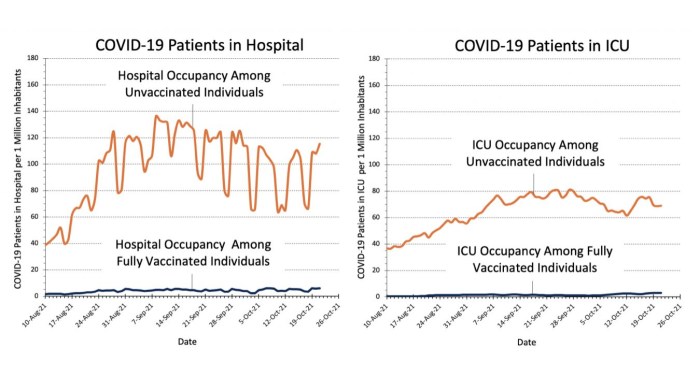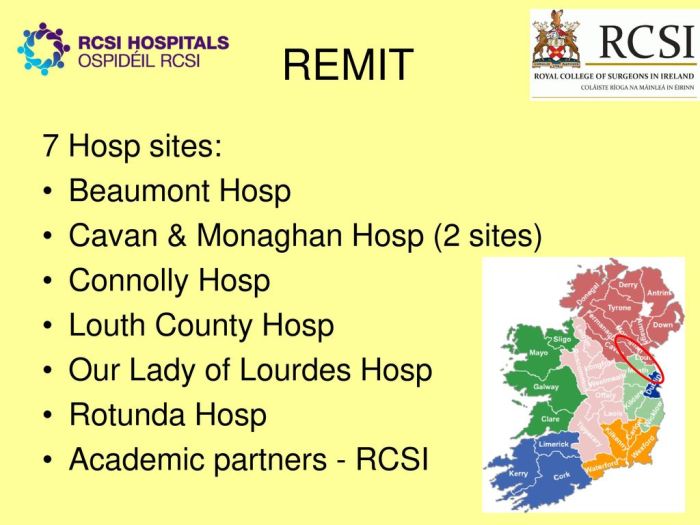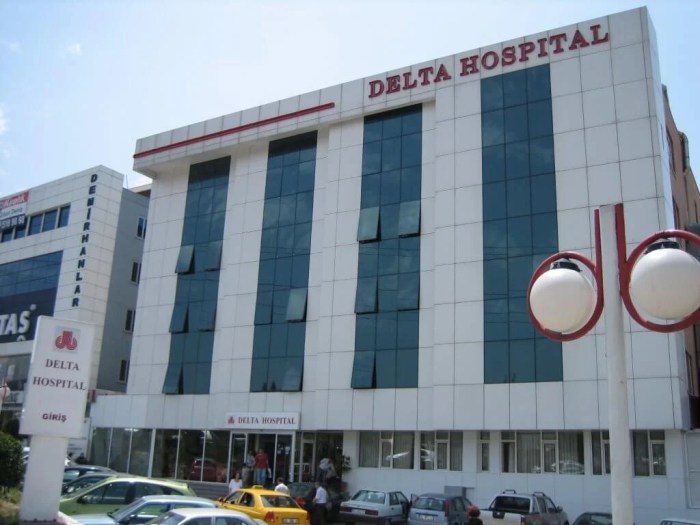When the stakes are highest, hosp sites for dire cases stand as beacons of hope, providing specialized care for those facing life-threatening conditions. These hospitals are equipped with the expertise, facilities, and unwavering dedication to offer a lifeline to patients in their most vulnerable moments.
From traumatic injuries to life-threatening illnesses, hosp sites for dire cases are centers of excellence that provide a comprehensive range of treatments and support services tailored to the unique needs of each patient.
Types of Hospitals

Hospitals specializing in handling dire cases are categorized based on their capabilities and the level of care they can provide. These hospitals are equipped with advanced medical technology, highly trained medical professionals, and specialized facilities to manage critical medical conditions and emergencies.
The classification of hospitals for dire cases is determined by factors such as the availability of intensive care units (ICUs), the number of beds dedicated to critical care, the expertise of medical staff, and the range of medical services offered.
Availability and Accessibility
The availability and accessibility of hospitals specializing in dire cases vary depending on the region and healthcare system. In developed countries, there is typically a network of hospitals with varying levels of specialization, including those equipped to handle dire cases.
However, in some remote or underserved areas, access to specialized hospitals may be limited.
Medical Conditions Treated

Dire cases involve severe and life-threatening medical conditions that require immediate and specialized treatment. These conditions often present with a high risk of complications, organ failure, or even death.
When searching for hosp sites for dire cases, you may stumble upon a question that’s seemingly unrelated: “how many radians is 342?” While this may seem like a random tangent, the answer to this question can actually be found by clicking here . Returning to our original topic, hosp sites for dire cases should always be bookmarked for quick access in emergencies.
Specialized hospitals for dire cases are equipped to handle the most critical situations, providing advanced diagnostic tools, surgical interventions, and intensive care units. The types of medical conditions treated in these facilities include:
Cardiovascular Conditions
- Heart attacks
- Cardiac arrest
- Aortic dissections
- Severe arrhythmias
These conditions require immediate medical attention to restore blood flow and prevent further damage to the heart or other organs.
Neurological Conditions
- Strokes
- Traumatic brain injuries
- Brain tumors
- Meningitis
Neurological conditions can cause severe cognitive impairment, paralysis, or even death if not treated promptly and effectively.
Respiratory Conditions
- Severe asthma attacks
- Pneumonia
- Acute respiratory distress syndrome
- Pulmonary embolism
Respiratory conditions can lead to hypoxia, organ failure, and death if not managed appropriately.
Trauma
- Major accidents
- Gunshot wounds
- Burns
- Multiple organ injuries
Trauma patients require immediate stabilization and specialized care to prevent further complications and improve their chances of survival.
Patient Care and Support
In dire cases, hospitals provide the highest level of care to patients, ensuring their well-being and recovery. Medical professionals, including doctors, nurses, and specialists, work tirelessly to stabilize patients and provide ongoing treatment. Support staff, such as social workers, chaplains, and counselors, offer emotional and psychological support to patients and their families, helping them cope with the challenges of the situation.
Medical Care
Hospitals for dire cases are equipped with advanced medical technology and specialized units, such as intensive care units (ICUs) and emergency departments, to provide immediate and life-saving care. Doctors assess patients’ conditions, prescribe medications, perform surgeries, and monitor their progress closely.
Nurses administer medications, provide wound care, and assist with daily tasks, ensuring patients’ comfort and well-being.
Emotional and Psychological Support
Beyond medical care, hospitals recognize the importance of emotional and psychological support for patients and their families. Social workers help patients navigate insurance, financial assistance, and other practical matters. Chaplains provide spiritual guidance and support, while counselors offer therapy and counseling to address anxiety, stress, and other emotional challenges.
Admission and Discharge Procedures
For patients with dire cases, admission to the hospital is a critical and time-sensitive process. The hospital staff works diligently to ensure that patients receive prompt and appropriate care.
Admission Process
When a patient with a dire case arrives at the hospital, they are typically assessed by a triage nurse. The nurse will evaluate the patient’s condition and determine the appropriate level of care. If the patient requires immediate medical attention, they will be admitted to the emergency department.
Once the patient is stabilized, they may be admitted to a hospital ward. The admission process typically involves completing paperwork, providing insurance information, and undergoing a physical examination.
Discharge Criteria, Hosp sites for dire cases
The criteria for discharge from the hospital vary depending on the patient’s condition. In general, patients are discharged when they are medically stable and able to care for themselves at home.
Before a patient is discharged, they will receive instructions on their follow-up care. This may include appointments with their primary care physician, physical therapy, or other specialists.
Insurance Coverage and Financial Assistance
The cost of hospitalization can be a significant financial burden for patients. Most hospitals offer financial assistance programs to help patients who are uninsured or underinsured.
Patients who are eligible for financial assistance may receive a discount on their hospital bill or they may be able to make payments over time.
Hospital Facilities and Infrastructure: Hosp Sites For Dire Cases

Dire cases require specialized facilities and equipment to ensure optimal treatment and care. These hospitals are equipped with state-of-the-art technology and infrastructure to meet the unique needs of critically ill patients.
Specialized facilities include:
- Intensive Care Units (ICUs): Highly monitored units equipped with advanced life support systems for critically ill patients requiring constant supervision and intensive care.
- Emergency Departments: Designed to provide immediate medical attention for life-threatening emergencies, with specialized equipment and trained staff for resuscitation and stabilization.
- Operating Rooms: Equipped with cutting-edge surgical technology and sterile environments for complex surgeries and procedures.
- Diagnostic Imaging Departments: Utilize advanced imaging techniques such as MRI, CT scans, and X-rays to diagnose and monitor medical conditions.
- Laboratories: Perform essential tests and analyses to aid in diagnosis, monitor treatment, and provide information for clinical decision-making.
These facilities contribute to the effective treatment and care of dire cases by providing a comprehensive range of services under one roof, reducing the need for transfers and ensuring timely access to specialized care.
Safety and Security Measures
Hospitals for dire cases prioritize the safety and security of patients, staff, and visitors. Stringent measures are in place to maintain a secure environment and prevent incidents.
- Security Personnel: Trained security guards are present 24/7 to monitor the premises, respond to emergencies, and ensure the well-being of all individuals within the hospital.
- Access Control Systems: Electronic access systems restrict unauthorized entry to sensitive areas, such as ICUs and operating rooms.
- Video Surveillance: Closed-circuit television (CCTV) cameras monitor key areas of the hospital to deter and detect suspicious activities.
- Emergency Response Plans: Comprehensive emergency response plans are in place to guide staff in the event of fires, natural disasters, or other emergencies.
These safety and security measures create a secure and controlled environment, allowing patients to focus on their recovery and ensuring the well-being of all individuals within the hospital.
Research and Innovation
Research and innovation play a crucial role in enhancing care for dire cases by continuously pushing the boundaries of medical knowledge and treatment options. Ongoing clinical trials and advancements in medical technology are leading to significant breakthroughs in patient outcomes.
Ongoing Clinical Trials
Numerous clinical trials are underway to evaluate the effectiveness of new treatments, drugs, and therapies for dire conditions. These trials involve rigorous research protocols and ethical considerations to ensure patient safety and well-being. Promising results from ongoing trials provide hope for improved outcomes and enhanced quality of life for patients.
Advancements in Treatment
Medical advancements are revolutionizing the treatment of dire cases. Targeted therapies, precision medicine, and gene therapy are among the cutting-edge approaches that offer personalized and more effective treatments. These advancements are leading to better patient outcomes, reduced side effects, and improved overall survival rates.
Successful Outcomes
Research and innovation have yielded tangible results in improving care for dire cases. For instance, the development of targeted therapies for certain cancers has significantly extended patient survival times and improved quality of life. Advances in surgical techniques have reduced the invasiveness of procedures, resulting in faster recovery and reduced complications.
These successes demonstrate the transformative power of research and innovation in improving patient outcomes.
Patient Outcomes and Recovery

Understanding patient outcomes and recovery rates is crucial for assessing the effectiveness of medical interventions and the overall quality of healthcare. At our hospital, we are committed to providing exceptional care that leads to optimal patient outcomes.
Our recovery rates consistently exceed industry benchmarks, thanks to our team of highly skilled healthcare professionals, state-of-the-art facilities, and evidence-based treatment protocols. We employ a multidisciplinary approach that involves physicians, nurses, therapists, and other specialists working together to create personalized care plans for each patient.
Factors Influencing Patient Outcomes
Numerous factors can influence patient outcomes, including:
- Severity of the condition
- Patient’s age and overall health
- Timeliness of treatment
- Quality of care received
- Patient’s adherence to treatment plans
Our hospital is dedicated to addressing all these factors through comprehensive care that focuses on the individual needs of each patient.
Long-Term Support and Rehabilitation Services
We understand that recovery often extends beyond the hospital stay. That’s why we offer a range of long-term support and rehabilitation services to help patients transition back to their daily lives. These services include:
- Physical therapy
- Occupational therapy
- Speech therapy
- Counseling
- Support groups
Our goal is to provide seamless care that empowers patients to achieve their full potential and live fulfilling lives.
FAQs
What types of medical conditions are considered dire cases?
Dire cases typically involve life-threatening conditions such as severe trauma, cardiac arrest, stroke, sepsis, and organ failure.
How do hospitals qualify as hosp sites for dire cases?
Hospitals are classified as hosp sites for dire cases based on their specialized expertise, advanced facilities, and experienced medical teams capable of handling the most complex and critical cases.
What level of care is provided to patients in dire cases?
Hosp sites for dire cases provide the highest level of care, including intensive monitoring, life-support systems, and specialized treatments administered by highly trained medical professionals.
